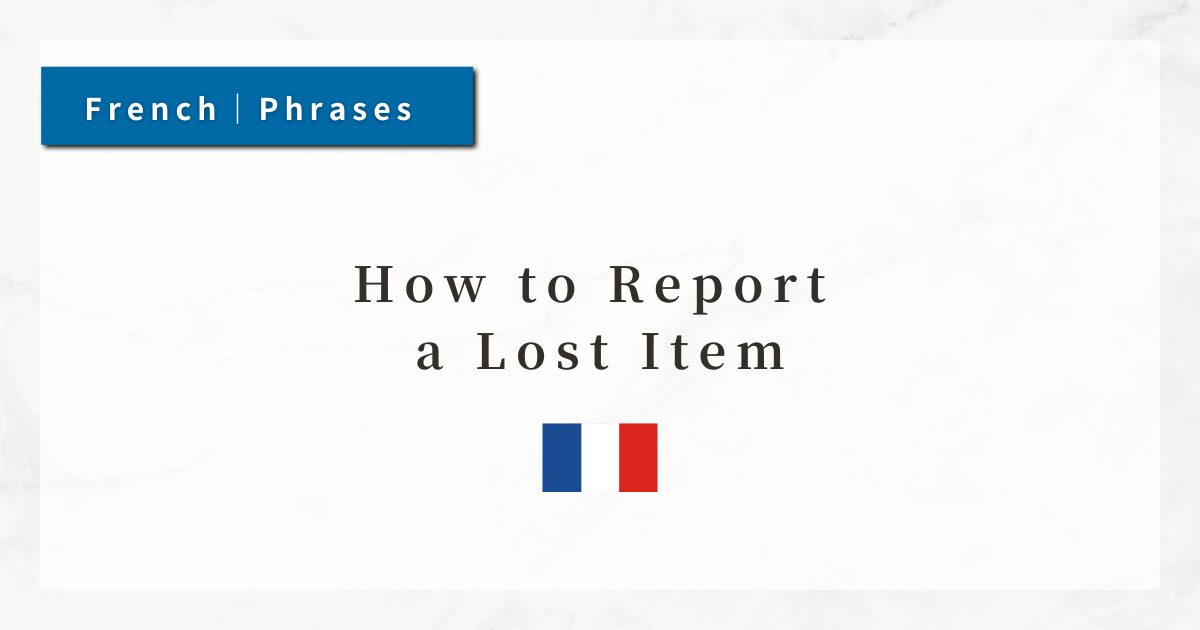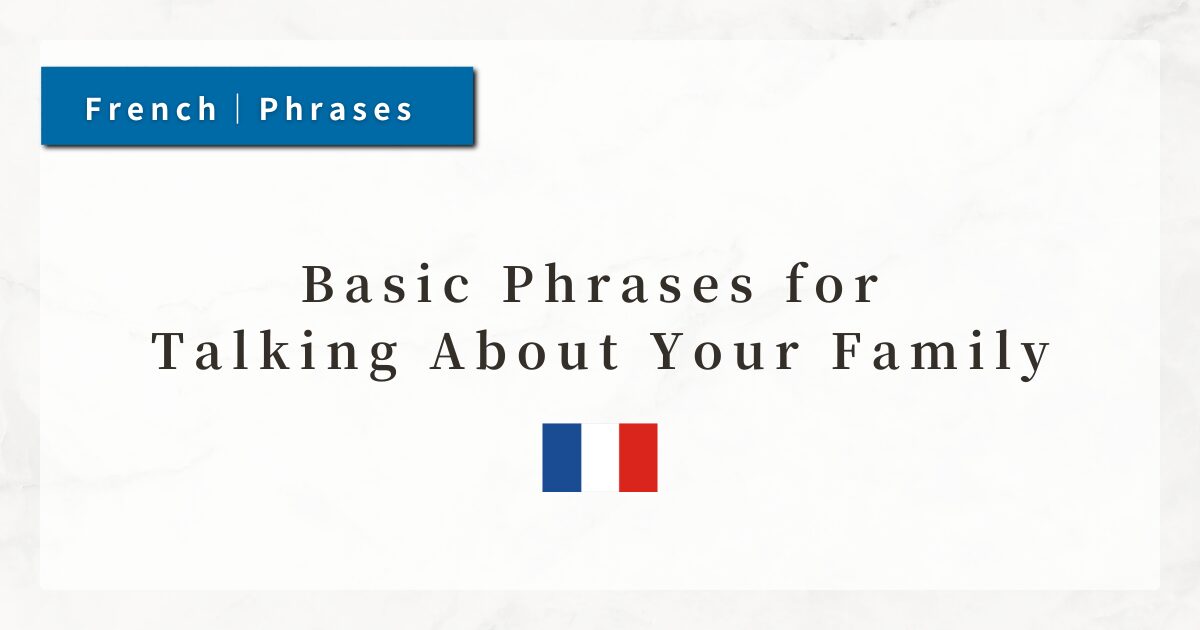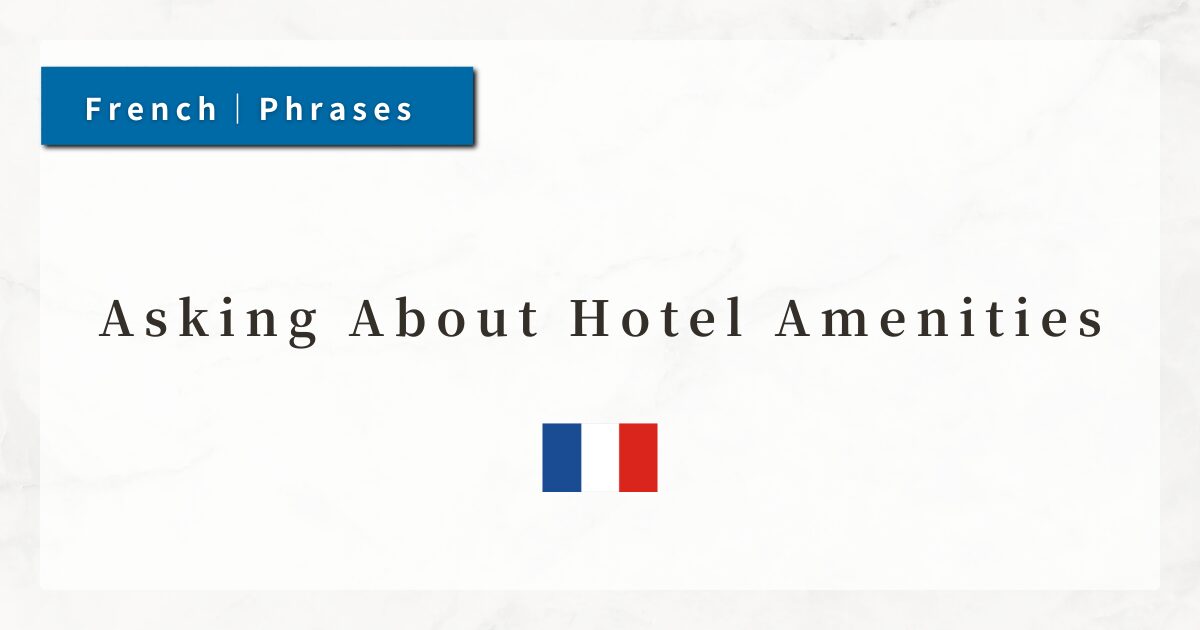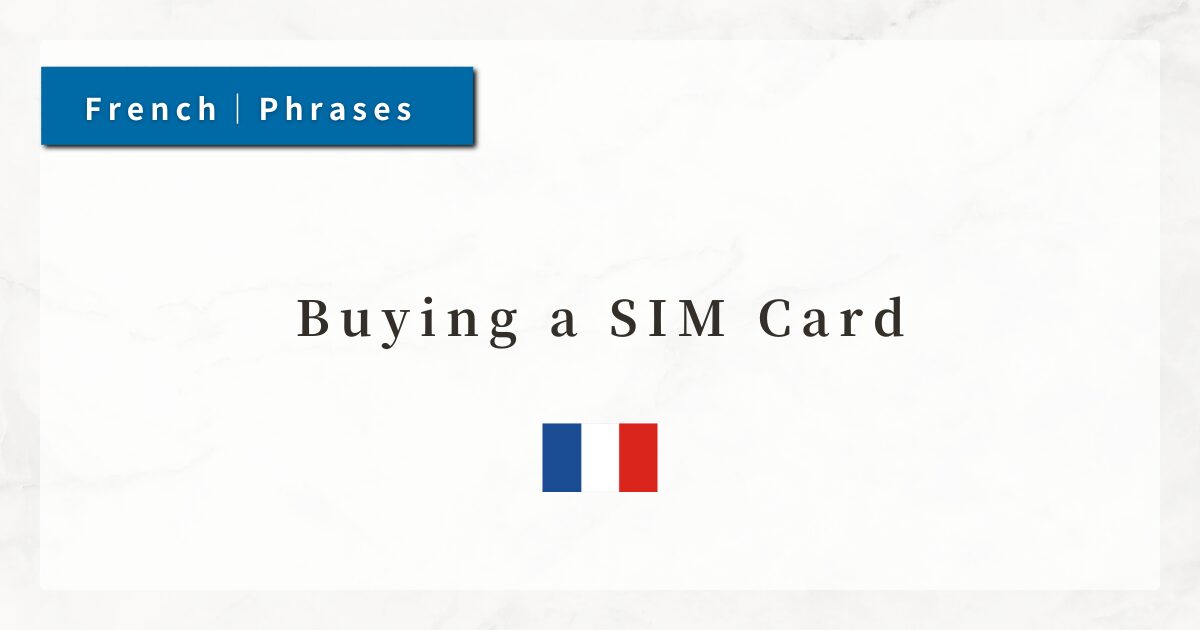#5 How to Report a Lost Item|French Communication Phrases

When traveling or walking in the city, you may come across a wallet or smartphone that someone has dropped.
In France, it is considered polite to immediately notify staff or someone nearby when you find a lost item. If you can use polite and natural expressions, you will be able to help people more effectively.
In this lesson, we will cover basic French phrases such as “I found this,” “It seems to belong to someone,” and “I would like to return it.”
Dialogue

Excusez-moi, j’ai trouvé ce portefeuille par terre.
(Excuse me, I found this wallet on the ground.)

Merci beaucoup. Vous savez à qui il appartient ?
(Thank you very much. Do you know who it belongs to?)

Non, je l’ai juste trouvé devant la porte.
(No, I just found it in front of the entrance.)

Très bien, je vais le remettre au bureau des objets trouvés.
(All right, I will take it to the lost and found office.)

Parfait. Bonne journée !
(Great. Have a nice day!)

À vous aussi !
(You too!)
1. Using the passé composé
In French, the passé composé is used to describe single, completed past actions such as “I found ….”
Structure:Subject + present tense of avoir + past participle
- J’ai trouvé un téléphone.
(I found a phone.) - Tu as trouvé mon sac ?
(Did you find my bag?)
2. Expressing possession
The verb “appartenir à …” means “to belong to ….”
- Il appartient à quelqu’un.
(It belongs to someone.)
In questions:
- À qui appartient-il ? / À qui il appartient ?
(Who does it belong to?)
These forms are more formal and are naturally used by staff in stations or tourist areas. More casual alternatives include:
- C’est à qui ?
(Whose is this?) - Tu sais à qui c’est ?
(Do you know who it belongs to?)
3. Expressing future intention
The construction “aller + infinitive” expresses the near future or intention.
- Je vais remettre ce portefeuille.
(I will return this wallet.)
When the object (ce portefeuille) is replaced by a pronoun, it comes before the verb:
- Je vais le remettre.
(I will return it.)
Here, le refers to the wallet and functions as the direct object.
Summary
- J’ai trouvé ce portefeuille par terre.
→ Demonstrates the use of the passé composé for completed actions. - Vous savez à qui il appartient ?
→ Means “Do you know who it belongs to?”; shows how to express possession. - Je vais le remettre au bureau des objets trouvés.
→ Polite way to express intention to return something to the lost and found office. - Bonne journée ! / À vous aussi !
→ Standard polite farewell expressions.




